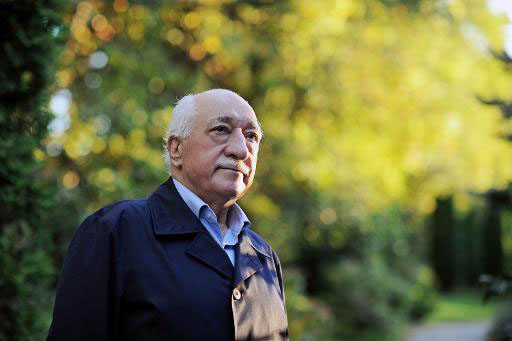ISTANBUL — Islamic cleric Fethullah Gulen has described a crackdown on his followers by Turkish Prime Minister Recep Tayyip Erdogan as “ten times worse” than anything meted out after coups by the secularist army.
Erdogan accuses Gulen’s Hizmet (“Service”) network, which has built quiet influence in the police and judiciary over decades, of orchestrating a graft investigation which has grown into one of the biggest challenges of his 11-year rule.
He has responded by tightening government control of the courts and reassigning thousands of police officers and hundreds of prosecutors and judges, in what his aides say is a drive to cleanse the judiciary of Gulen’s influence.
In his first major interview in Turkish media since the graft scandal burst into the open in December, the US-based cleric, whose worldwide network of followers say they number in the millions, said he was the victim of a campaign of slander.
“In the wake of the September 12, 1980 military coup, the authorities tracked me for six years as if I were a criminal. Raids were carried out. Our friends were harassed. In a sense, it became a sort of lifestyle for us to live under constant surveillance in a coup atmosphere,” he said.
“What we are seeing today is 10 times worse than what we saw during the military coups,” he was quoted as saying in an interview with the Zaman newspaper and its English-language edition, both close to his movement. (www.todayszaman.com)
The accusation is a strong one, given Turkey’s history.
Turkey’s army toppled four governments in the second half of the 20th century before Erdogan’s Islamist-rooted AK Party brought a decade of economic and political stability. Rights groups accused the generals of widespread torture and killings after coups in 1960 and 1980.
Erdogan, however, has couched the feud in equally historic terms, evoking the memory of one of his political heroes Adnan Menderes, a prime minister overthrown by the military in 1960 and hanged along with two ministers a year later.
Menderes eased curbs on religion, much as Erdogan has done, allowing thousands of mosques to reopen, opened new religious schools and legalised the call to prayer in Arabic. He too was accused of increasingly authoritarian rule.
“Back then they called Menderes a dictator. Today they say the same for me. Back then they called Menderes an enemy of freedom. Today, they say that about me,” he told thousands at an election rally in the southwestern province of Aydin, where Menderes was born, evoking his memory more than a dozen times.
March 30 municipal elections will be the first test of Erdogan’s popularity at the ballot box since nationwide protests last summer and since the graft scandal erupted.
Opinion polls suggest his support remains high, after a decade of strong economic performance, but he will be seeking a vote for his AK Party exceeding the 39 per cent of five years ago. In this, he may be aided by an opposition that is divided and lacking clear leadership.
“Either we claim Menderes’ battle for democracy or we will be siding with those who have martyred him. This election also has such a meaning,” Erdogan thundered at the rally.
Historic struggle
Gulen’s network helped cement the AK Party’s rise, using its influence in the judiciary to help break the army’s grip with a series of coup plot trials; but the marriage of convenience has fallen apart as the former allies turn on each other.
“This time, we face similar treatment but at the hands of civilians who we think follow the same faith as us,” Gulen said. “I should acknowledge that this inflicts extra pain on us. All we can do is say ‘This, too, shall pass,’ and remain patient.”
This month’s polls are followed by a presidential race five months later in which Erdogan had long been expected to stand, although his party could also change its internal rules to let him serve a fourth term as prime minister, casting his strong leadership as necessary to finish off the feud with Gulen.
Erdogan has described those behind the graft scandal as “leeches”, decrying what appears to have been the wiretapping over years of thousands of phones including his own by a “parallel state” bent on using blackmail to wield influence.
“The parallel state situation, I can say, is a peak in terms of organising a plot, the peak of all troubles,” he told Turkey’s Kanal 7 TV in an interview late on Sunday, describing it as worse than an attempt in the courts in 2008 to close the AK Party on charges of seeking to introduce Islamic rule.
“What really troubles us is this: legal or illegal how come the prime minister of a country is wiretapped? A court verdict to wiretap the prime minister is out of the question, you can’t do this ... not for the president, not for the chief of staff. These [people] have become so low, so small,” he said.
In his latest headache as he campaigns around the country for the local elections, a Twitter account behind a string of leaks in the scandal posted on Thursday what it presented as prosecution files accusing four former government ministers of involvement in bribery and smuggling.
Reuters could not verify the authenticity of the documents.
